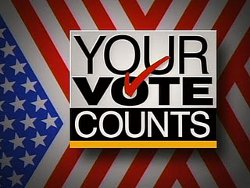Candidate Herman Cain on tax reform
Body
Discussion
Would You Vote for a Mormon for President? (A Second Look)
 The essay below first appeared in September of 2007 in anticipation of the ‘08 election. This version is updated for 2011.
The essay below first appeared in September of 2007 in anticipation of the ‘08 election. This version is updated for 2011.
Would you vote for a Mormon for President? Under the right conditions, I would.
By now, the name Mitt Romney is at least vaguely familiar to most of us. Romney, the former governor of Massachusetts, is running for President and is a Mormon. So far, his fund-raising efforts have been fruitful, and the discomfort of many Republicans with the alternatives has kept Romney in a strong position in the polls. Though his chances of being the Republican nominee are smaller now that Rick Perry has entered the race, an eventual Romney nomination is far from impossible.
Some pundits claim the Christian Right will never allow that to happen. In their view, evangelicals view Mormonism as a cult and anyone associated with Mormonism as an embodiment of evil. One pundit, who happens to be a Mormon, wrote the following:
Everyone knows that Christian evangelicals hate Mormons so badly that if they had to choose between a bribe-taking, FBI-file-stealing, relentless-lie-telling, mud-slinging former first lady, and a Mormon ex-governor who doesn’t lie, who’s still married to his first wife, and who supports the entire Christian evangelical agenda, they’d still rather die than vote for a Mormon.
Is he right? More importantly, should he be right? I for one would vote for the Mormon Romney over any liberal Democrat likely to seek office, and I’d do so with only brief hesitation. Before you brand me a nutcase or a heretic, consider the following factors behind my thinking.
Discussion
Opinion: Senate must stop Obama internet takeover
Body
Discussion
The “Christianist” Nightmare: It’s Just A Bad Dream
Body
The Christian right that apparently keeps Mr. Sullivan up at night shivering with fear is a pathetic, compromising bunch of namby pamby wimps compared to the holy warriors of my youth. Sullivan doesn’t, I think, get the whole sweep of American life.
Discussion